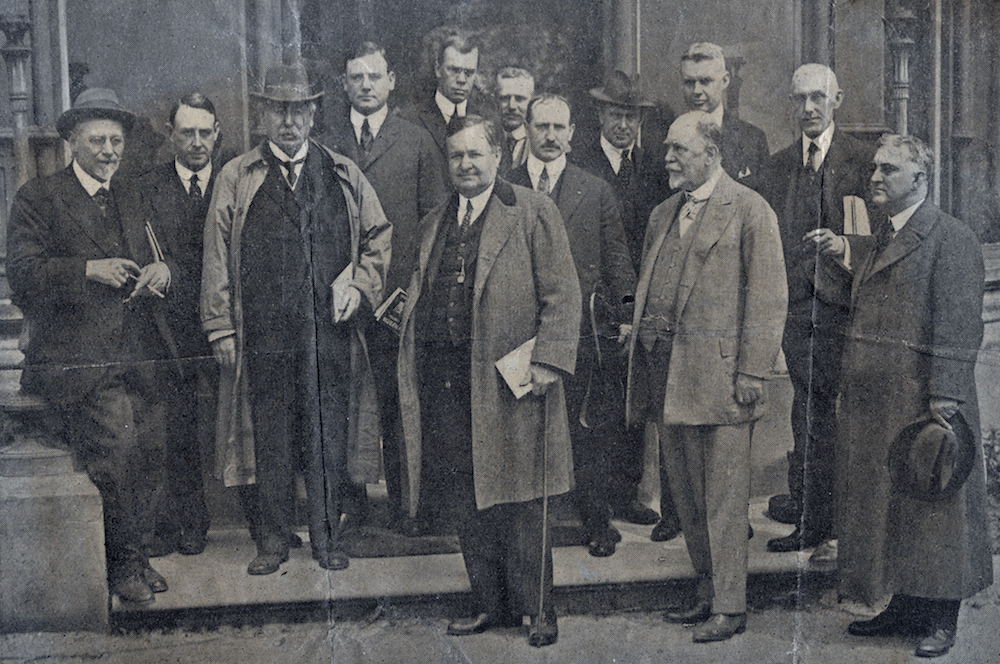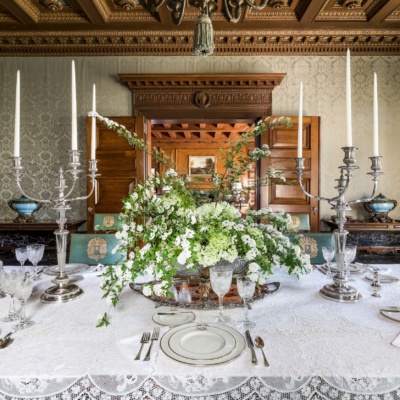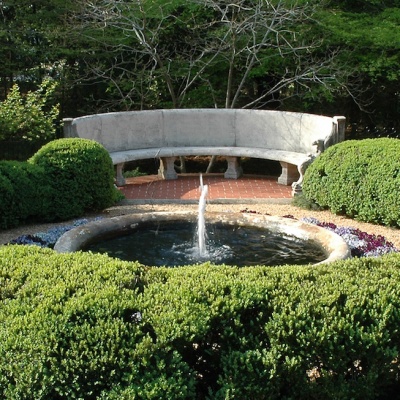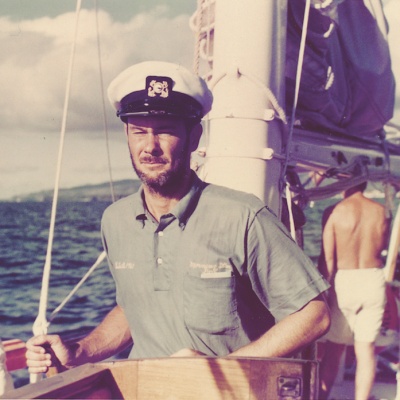A Glorious Fall Day

Most visitors are surprised to discover that Fuller E. Callaway Sr. lived at Hills & Dales for less than twelve years. Of all the days that Fuller Sr. lived in the house, October 11, 1919 stands out among the rest. On that day over 300 delegates from across Europe and North America made a stop by train to visit LaGrange and Hills & Dales before heading to the World Cotton Conference in New Orleans, Louisiana.
As the world began to make its way to peacetime after the end of World War I, President Woodrow Wilson felt that the relationship between labor, management and capital needed attention. In response, President Wilson created the First Industrial Conference, which met in Washington, D.C. in October of 1919 with Fuller Callaway serving as a delegate. At this time, Callaway was also serving as chairman of both the American Cotton Manufacturers Association and the European Commission for the World Cotton Conference. While Callaway testified at the First Industrial Conference in Washington, it was the World Cotton Conference that received the most attention.
In May of that year, Callaway and ten European Commission members embarked for Europe to promote and encourage attendance to the World Cotton Conference in New Orleans, also being held that October. Most European businessmen did not want to travel all the way to the United States to meet and discuss cotton, as there were many other post-war matters with which to deal. However, Fuller and the commission were persistent and their persuasive efforts were fruitful, as top textile executives from England, France, Italy, Switzerland, Ireland, Austria, the Netherlands, Norway, Belgium and even Czechoslovakia agreed to attend.
The significance of the business diplomacy they were conducting was underlined when Fuller was invited to the Paris Peace Conference and was present on June 28 to witness the signing of the Treaty of Versailles. It cannot be understated what an experience this must have been as he stood in the Hall of Mirrors and watched the signing of a document which would have a huge impact on world affairs for decades to come. Grasping the importance of what he was watching, he sent a cable back to his office through Western Union which said “Seeing peace signed.”
After the Commission’s return home, delegates from all over Europe prepared to attend the World Cotton Conference from October 13-16. However, plans were also underway for the delegates to stop in LaGrange on their way from New York to New Orleans to tour the textile mills and the numerous amenities, as LaGrange was becoming well-known as a model textile community. The pinnacle of their visit would be a tour and old-fashioned barbeque at Hills & Dales, the home and gardens of which Fuller and Ida were extremely proud.
Early on the morning of October 11 the train arrived in LaGrange. Fuller instructed that the visiting delegates were not to be awakened until around 7:00 a.m. Breakfast was to be served on the train and then around 8:30 a.m. the Committee on Entertainment, which consisted of around 200 business and professional men of LaGrange, arrived at the station by car and were at the group’s disposal for the remainder of the day. Fuller had outlined an A and B route, which consisted of touring LaGrange, including several cotton mills in operation, worker accommodations, greenhouses, recreational facilities and other amenities. They even saw a demonstration of the new mechanical cotton picker, recently introduced by Theodore Price of New York.
The delegates reported to Hills & Dales at 12:30 p.m. and were told to enter through the east gate where Boy Scouts were waiting to serve as guides through historic Ferrell Gardens. After touring the gardens, the guests were taken to the grove at about 1:00 p.m. Here they were served pork barbeque, corn on the cob and sweet watermelon by a committee of teachers and students from LaGrange. For the comfort of the visitors, a Red Cross tent complete with a physician, nurse, and first aid equipment was set up. Fuller even provided a mailing station for delegates to dispatch souvenirs, letters, and postcards. In typical Callaway fashion nothing was left to chance and by 6:30 p.m. they were back on the train in time for dinner and departure for New Orleans.
By all accounts the stopover in LaGrange was most enjoyable and went off without incident. For days following the barbeque Fuller and Ida received many letters of appreciation and thanks. Arthur Foster from Preston, England expressed: “Many thanks for a very happy day.” This beautiful day was no doubt a high point of Fuller’s career. The entire community of LaGrange had rallied behind him to provide a memorable time for their influential visitors, putting LaGrange on the map for years to come.


